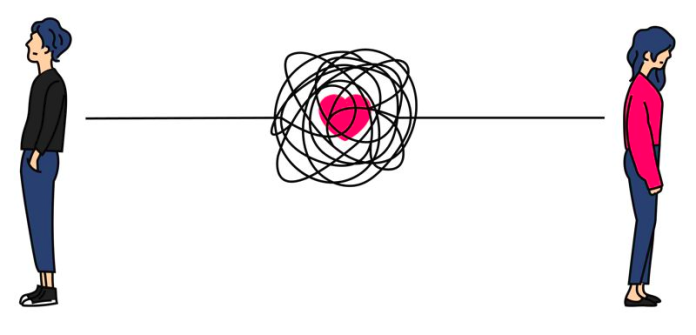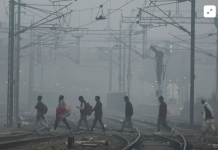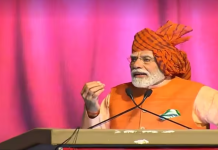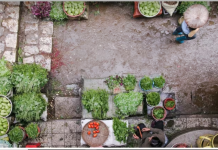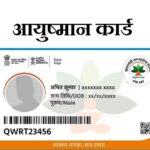ASIF IQBAL (49) was pursuing his Masters in Social Work at Jamia Millia Islamia in New Delhi in 1996 when he realised he was in love with a coursemate. Apart from the shared educational space, there were other similarities. They came from the same social and cultural milieu — both belonged to Uttar Pradesh, to like-minded families who supported the dreams of their children.
Asif’s love story should have been like any other — some initial hiccups in a conservative society, but love overcoming everything in the end. However, there was one impediment, big enough for both their families to oppose the union. Ranu Kulshrestha belonged to a Hindu Kayastha family.
“My family did come around after the initial hesitation. Hers took about six months after we got married in 2000. The process of registering our marriage under the Special Marriage Act was quite lengthy,” recalls Asif. “Our own problems in registration and acceptance, the Gujarat riots (2002) and other communal issues thereabout made us aware about the problems other inter-faith couples would be facing.” Thus, in 2004, he and Ranu co-founded Dhanak (rainbow in Urdu) for Humanity, along with other like-minded people, to support inter-religion and inter-caste couples and the issues and challenges they faced.
Since Dhanak’s registration, the organisation has helped at least 5,000 persons pan-India facing faith-related marital and other issues. From offering guidance, legal aid, to even a safe house for couples facing a threat to life, the NGO tries to extend help to distressed couples.
There have been cases though where the help came too late. Delhi-based Ankit Saxena (23) was stabbed to death in February 2018 by the family of his Muslim girlfriend Shehzadi (19 at that time). “Baatcheet karne se koi hal ho jaata, but they refused to listen to him. Ankit kept on telling them, ‘Maine kuchh nahi kiya’,” recalls a pensive Kamlesh (52), his mother.
Dhanak contacted his parents after the incident and ran a campaign to help the family raise money and get a grant by the Delhi government, says Asif. Ankit’s father, Yashpaul, wanted to use that money to create a trust in his son’s name and help other inter-faith couples in trouble. But that was not to be as he passed away in April last year. Kamlesh, yet to come to terms with the reality, is determined to revive the Ankit Saxena memorial trust so that other beleaguered couples can at least realise their love story even if her son couldn’t.
Opening up to belief systems
Chandigarh-based Ameer Sultana (60) wonders at the absurdity of it all. “It is legal to live together without marrying but inter-faith marriages are still a problem,” rues Sultana, who heads the Department of Women Studies at Panjab University. As the narrative of otherisation becomes strident, Sultana feels marrying across religions is the only way to strengthen the secular fabric or the ‘Ganga-Jamuni tehzeeb’. Her own 34-year-old marriage to Dildar Singh, a Sikh, when militancy was at its peak in Punjab, is an ideal example of the syncretic thread that binds the country.
Married for 15 years now, Pooja Vashisht, a Punjabi Hindu, and Ashish Alexander, a Christian, had known each other for long before they took the plunge. As students of literature, they had debated the purpose of life, the philosophical aspects of religion. So, when it was time to spend life together, which god one prays to wasn’t something to be discussed. They had other logistical, practical issues to take care of. Making both the families comfortable was a priority and the couple decided to go in for a court marriage, followed by a reception.
“We didn’t go for a church or Hindu wedding because we knew the families could be uncomfortable with the ceremonies of the other’s religion,” says Pooja, a freelance journalist. The only one who seemed to have a problem was the government official who visited her before the wedding, perhaps to check if this wedding was happening under duress. “As he was leaving my paying guest accommodation, he seemed to taunt me, saying, ‘Sab Hindu Brahmin ladke khatm ho gaye the kya?’”
Presently based at Prayagraj in UP, where her husband teaches at a university, Pooja says lack of awareness and politically motivated narratives play a big role in breeding misgivings and fears about getting married to men and women from different faiths. “As a society, we need to open up to each other’s beliefs,” she feels.
The otherisation
That stereotypical image of ‘the other’ is what Jaipur-based lawyer Kayum Khan says became the topic of discussion between him and Shweta Choudhary, his neighbour. “She hated Muslims,” he laughs. “And I would reason with her. She soon realised that we were just like them, that the image of Muslims, drilled into her mind by society, was so wrong.” The two were soon in love.
In due course, Shweta told her family about her wish to marry a Muslim man, and all hell broke loose. No phone, no college… Anything that could help him contact Shweta was snatched. “As the right wing got a whiff of the affair, they began visiting her father daily, brainwashing him further,” Kayum recalls.
To elope and get married was an easy choice, but conversion wasn’t something they were looking at. A wedding under the Special Marriages Act was what they wanted, but that would have meant exposing themselves to more threats. Also, Kayum had just started practising law and knew only goodwill worked in the profession.
The two knew they had to do something when Shweta got engaged to another man at her family’s insistence. And one day, she went to the police station and lodged a complaint against her parents. The cops registered her complaint and sent her to a women’s shelter home. Four days later, as Kayum was leaving for court, his in-laws attacked him, including Shweta’s minor sister.
He was accused of molesting her and was hit in the right eye by her father, which led to loss of vision. “I was taken to the police station with broken limbs and a case was registered against me under POCSO,” he recalls. Eventually, helped by the People’s Union for Civil Liberties, Kayum got out of jail after 45 days. He married Shweta in November 2019 and they now have a baby. Her family is still against the marriage.
Mumbai-based Venil Ali (36), working in the social sector since her college days, agrees as the narrative of otherisation gets shriller by the day. Venil, whose family has a history of inter-faith marriages, says Mumbai’s landlords have given her and her Brahmin husband Kanishka Sharma more heartache than their own families. Her father Haider Ali is a veteran actor and writer, who co-scripted Jodhaa-Akbar.
Her Tamil Bramhin mother, Uma Shankari Natarajan, is a renowned doctor, while Haider’s mom was a Jewish actress and dad a Muslim superstar. This cosmopolitan background ensured Venil’s family had no problems and ‘strong apprehensions’ of Tanishk’s family were laid to rest by Venil’s human values. “There were hardly any religion-related adjustments post-marriage with my in-laws. Getting a rented flat was tougher.
In eight years of marriage, we have shifted house three times and each time it has become worse — from a one-off landlord to a whole building or society balking at my surname that I hadn’t changed. It has always been the society around that makes you feel ‘Muslim’.”
A Bengali Hindu married to a Muslim, Sucharita Sengupta (41) agrees whole-heartedly. “Bizarre questions by the extended family about my husband or his religious practices made me feel as if he is a museum object,” says the assistant professor at Jamia Millia Islamia.
She met Adnaan Farooqi in JNU where both were studying. “JNU back then was an open and liberated space. With many inter-faith couples around, it was quite a normal thing. I feel sad and angry now when I see many of my students giving up on their inter-religion relationships as fear permeates our society.”
But that wasn’t the case with Mona, who teaches at a premier nursing institute in Punjab. She had her own reasons behind marrying Delhi-based doctor Sameer (it was a case of remarriage for both). Firstly, she wanted to marry a medico who would understand the needs of her special child; second, that someone may or may not help her bring son up, but shouldn’t stop her from going the extra mile to make his life better.
Religion wasn’t something she was giving a thought to. The families, as expected, objected initially but came around soon. Five years on, they are happily married. While Mona confesses she is not overtly religious, the husband is a devout Muslim who fasts during Ramzan — but their beliefs, she says, have never been an issue with the other.
Going back to Constitution
The only solution, Sengupta feels, is to return to the Constitution and not be cowed down. Guneeta Chadha (57), who teaches fine arts at GCG-11, Chandigarh, concurs, “Youngsters have to stand up and speak up.” She did so herself 34 years back.
Belonging to a conservative Sikh family from Amritsar, when she fell in love with a fellow Hindu student, Rajesh Chadha, her grandfather, who was associated with Chief Khalsa Diwan, refused permission to go ahead with the marriage or even print the wedding cards. Her mother, feminist Punjabi writer, Sharan Makkar, convinced the rest of the family, while Rajesh’s family was more accepting.
Societal support may be vital, but it is the support by the in-laws that makes life easier eventually. Kolkata-based Sarika was just 18 when she eloped with Mehrajuddin Azgar in 1999, a lubricant oil dealer from Srinagar, who believes marriage is between individuals and not religions. “Hum pehle insaan hain, Hindu yaa Mussalman baad mein,” he puts it simply.
Initial opposition notwithstanding, the Azgar family has been her rock as Sarika finished her post-graduation and is a teacher now. “Even my extended family rallied around her, calling themselves her ‘maayka’. She has become the family’s favourite daughter-in-law now,” smiles a proud Mehraj. As for Sarika’s own family, it took them a few years to accept the marriage.
Dootika Liddle (55) was studying medicine at CMC, Ludhiana, when Punjabi Brahmin Varinder Shukla (54) fell in love with this Christian girl from UP. She firmly refused his proposal, remembering her parents’ anguish at her elder sister’s inter-faith marriage. However, he persisted.
“They didn’t attend my wedding. My father had insisted on a church wedding. Varinder agreed but drew the line when the pastor wanted him to convert. My in-laws, however, especially my father-in-law, were much more welcoming to me, and Varinder’s total support was instrumental in getting over the initial adjustment issues though nothing religion-related.”
Stitching the secular fabric
So how do we darn this secular fabric stretched thin? “The problem is steeped in our ignorance, heightened by the media and cinema reinforcing the stereotypes about a particular religion, community. Parents causally ghettoise their teenagers’ minds/choices, particularly that of girls, telling them not to choose Muslim boyfriends/partners. The solution lies in more heterogeneous spaces for everyone to mix, leading to more exposure and awareness about other religions,” says Venil.
Asif and Sultana both insist that such couples need to speak up and make their voice heard over the present din of divergence overtaking the society. “Constitutional help and organised conversations,” Sultana further suggests, adding, “just as the farmers’ movement showed us the power of organised protests.”
Shimla-based historian Raaja Bhasin, a Brahmin married to a Sikh, says: “The religion that one is born into is an accident of birth. Whom one chooses to love and be loved by becomes a matter of choice.” Happiness too. And real happiness in any marriage means a meeting of hearts, says Sirat Jahan (29) of Asansol in West Bengal, married to Rahul Rajak for four years.
Chandigarh-based tailor Pappu Ali (39), married to Geeta for over 16 years now, nods in agreement: “Dharam se zyada zaruri hai ki dil mil jayein.”
RIGHT TO CHOICE

In an atmosphere where religious intolerance seems to find easy acceptance, Maj Gen Yash Mor (retd), a life coach and Tedx speaker, has sound advice for the young: “Don’t fall prey to religious intolerance. This is not the idea of India that we have grown up with. Your future doesn’t lie in this. In another 20 years, all these people who are promoting hatred will go away, and you will be left with an India full of hate. Is this the country you want for yourself?”
It’s so sad, he says, that the young people can’t even love freely today. “Thankfully, we had Hindi cinema which taught us to love without worrying about anyone’s caste, creed or religious preferences. Bollywood is a shining example of inclusivity.”
The learnings have to come out collectively in matters of choice, feels Kavita Srivastava from the People’s Union for Civil Liberties, who has spent the last 30 years helping couples get married. Based in Rajasthan, she says that when you have the radicals interfering with girls’ marriages in the name of religion, it reflects on caste also.
Hardlining is happening there too. “We have been pushed backwards with the girls’ decision-making. Parents, at all levels, are so rigid about choice,” she says. The law needs to take the side of the girls, she adds. “We need to talk about how you can facilitate marriage, how you can facilitate protection. Why must a 30-day period be mandatory, why display pictures? The news goes out and the girl and boy are in danger. The need of the hour is to amend the Special Marriage Act,” says Srivastava.
Agrees advocate Gagan Deep Goyal, who practises at the district courts in Chandigarh. He says that while marriages under the personal law do not require a notice or invitation for objections, such a requirement is obsolete under a secular law and cannot be forced on a couple.
He feels that the provision for mandatory publication of notice invades the fundamental rights of liberty and privacy, including the freedom to choose your marriage partner without interference. “The provision of a
30-day gap as mentioned in Section 5 should be annulled so as to prevent the parties from being harassed,” adds Goyal.


